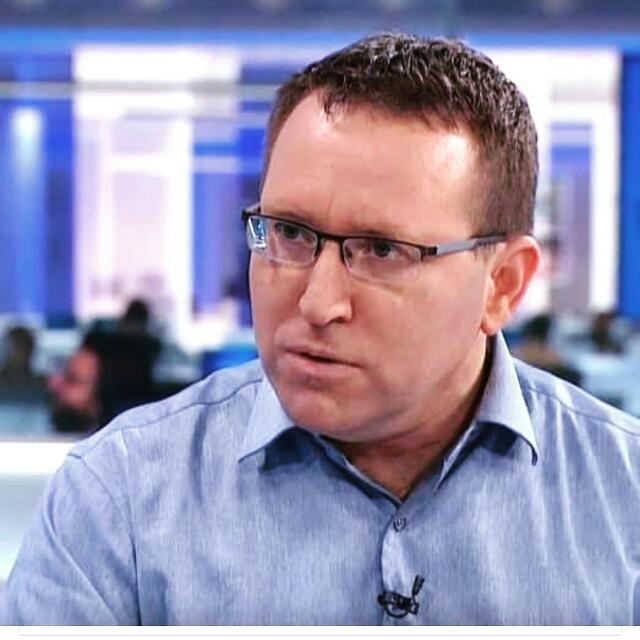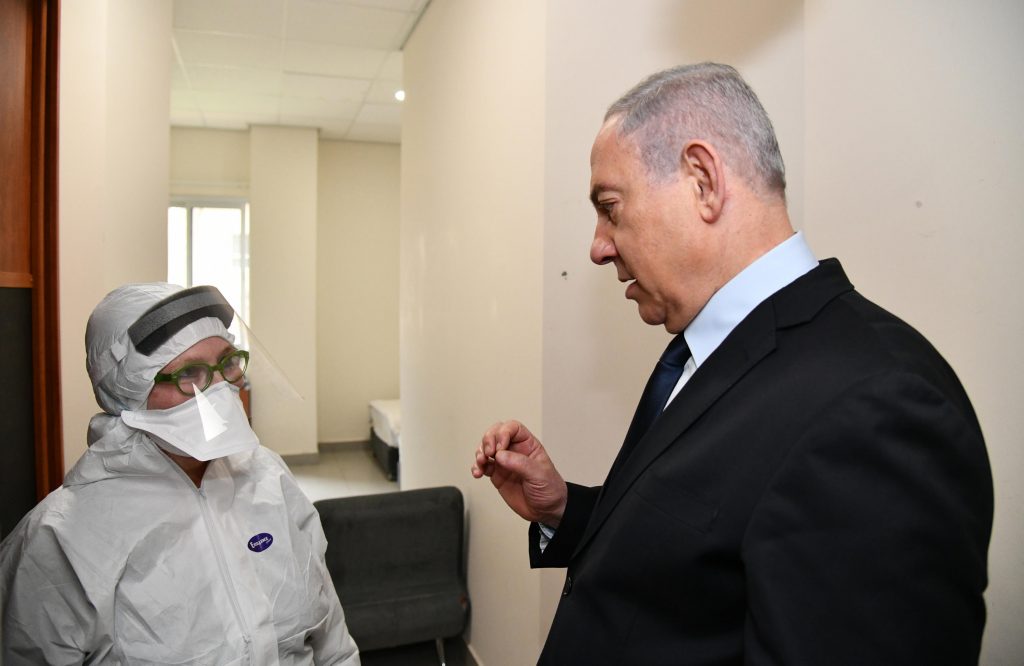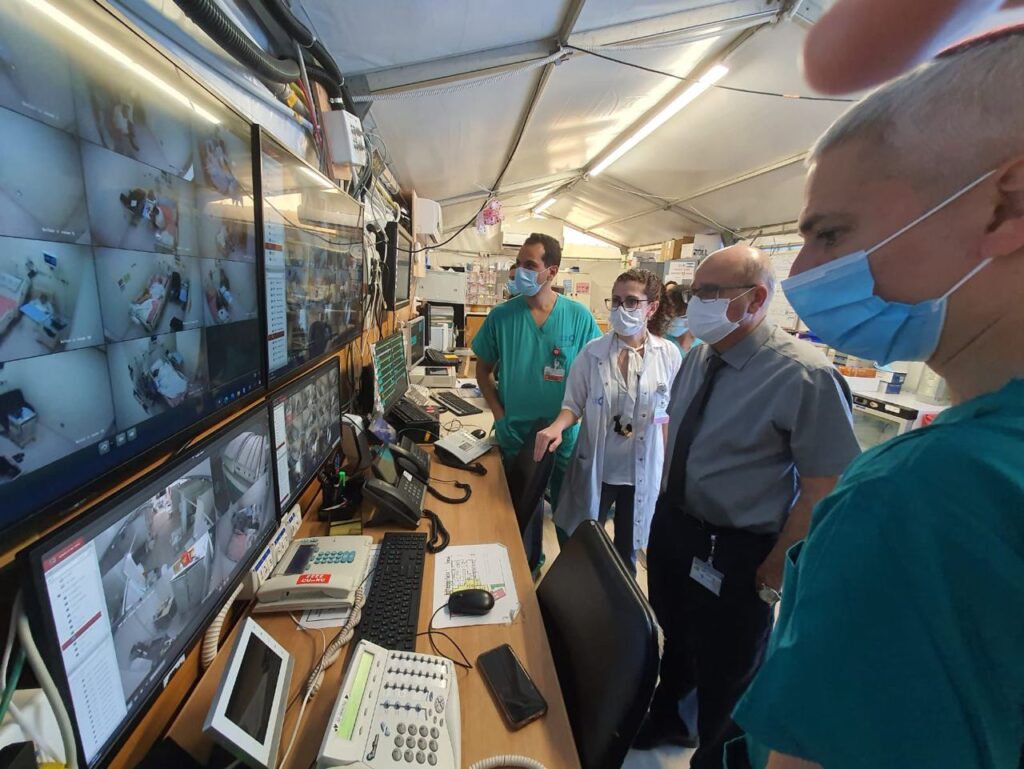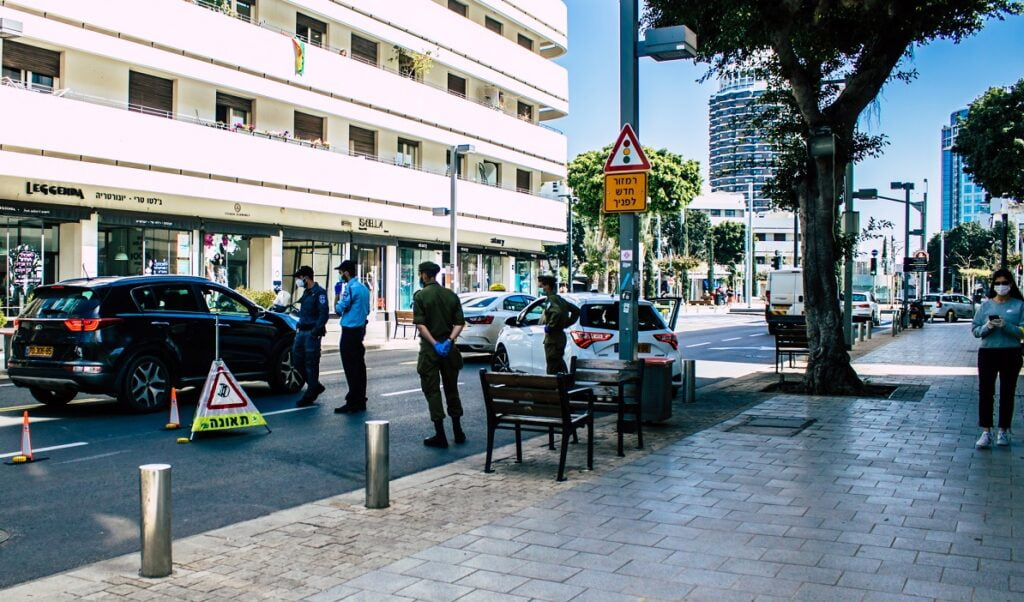The Israeli government is sowing public confusion and mistrust, and has no clear exit strategy out of this second lockdown, charged Professor Hagai Levine, head of the Israeli Association of Public Health Physicians, as well as a member of Israel’s national coronavirus coordinator Professor Ronni Gamzu’s advisory panel.
The situation is “very bad right now” and the Israeli health system has “begged” the decision-makers for a plan, said Levine, a professor of Epidemiology at the Hebrew University and Hadassah Medical Center. Levine spoke Thursday during a press briefing, as the Israeli government moved to further toughen restrictions on its week-old general lockdown.
SEE ALSO: Second Lockdown Won’t Halt Israel’s Worst Health, Economic Crises On Record – Study
The new measures, set to go into effect on Friday afternoon, will require that all non-essential places of business close their doors and that people stay within a kilometer of their homes. There will also be new limits on public prayers, with synagogues set to close only after Yom Kippur next week, as well as the weekly mass demonstrations against Prime Minister Benjamin Netanyahu.

These limits are expected to draw a backlash as Israel’s influential Ultra-Orthodox parties have threatened to resign from the coalition if restrictions are placed on prayers. The opposition, too, has suggested the government is using the lockdown to silence the protesters.
The country’s COVID-19 infection rates have continued their alarming climb in recent weeks to become the world’s highest per capita. Israel recorded 6,808 new infections over the previous 24 hours, as of Thursday, and more than 50,000 active cases.
As the coronavirus cases have surged and the health system has buckled, “we at the Israeli Association of Public Health Physicians went to the parliament [Knesset], to the media, and the decision-makers and begged for a plan. There is no plan. What is going to happen in a week, in two weeks, in four weeks, in six months? Nothing!” he accused.
It’s not clear, going into this lockdown, what parameters the Israeli government will use to lead us out of it, he said.
“When there is no plan, and no logic, the public loses trust,” added Levine.
According to a new poll released on Wednesday by the Israel Democracy Institute (IDI) on the government’s handling of the pandemic and the economic fallout, just 27 percent of Israelis trust Netanyahu to lead the country’s effort against COVID-19. This is down from 57.5 percent who said that they trusted him in the beginning of April.
A coronavirus response turned sour
After implementing an initially sound coronavirus response back in March, things have rapidly gone sour as the public lost faith in the government and its decisions, Levine said. Over the past week, the public has gone into “complete confusion” as the government appeared to make decisions out of political considerations and not professional ones.
In July, the Israeli government appointed a coronavirus “czar,” Professor Ronni Gamzu who leads a team of experts, including Levine, but the government has “not been listening to the recommendations of the experts over these past weeks,” said Levine. Instead, it has issued decision after decision – on the movement of people, closures of businesses, etc – devoid of “common sense.”

There are too many exceptions and not enough enforcement, charged the professor. The newest exception is Yom Kippur, the holiest day in Judaism and a day where most of the country shuts down for 25 hours for the Day of Atonement. It is also a day for mass gatherings.
According to the new rules, synagogues will only be shut after the holiday, a move that could lead to mass transmission of the infection, warned Levine.
Sign up for our free weekly newsletter
Subscribe“In Israel, [Yom Kippur] not only for religious Jews, many secular Jews visit synagogues as well. According to data that we have, more than two million Israelis visit synagogues on Yom Kippur. So the government is proposing to exempt synagogues and to allow gatherings in synagogues,” he said.
“This is not only very high risk, it’s actually going to be the largest gathering in the world,” theoretically, approved by the government, explained Levine.
“Keeping the synagogues open sends the wrong message…We should focus on the public health. If the behavior is risky, it should not be allowed – whether it’s for religious expression, democracy etc,” he continued.
Levine even compared the moment to the Yom Kippur War in 1973 when a coalition of Arab states led by Syria and Egypt launched a surprise attack against the Jewish state. “Then, they did not follow the signs and were surprised. Now, there are no surprises. There will be mass [virus] transmissions,” if the synagogues are left open.
Fighting a pandemic is like a running marathon – or playing chess
Dealing with a global pandemic is like running a marathon, Levine explained. We need to set a pace and slow down or speed up, accordingly, but never stop completely.
In the short run, there needs to be a complete lockdown that begins right away, not on Friday. After Yom Kippur, the government needs to take the right measures and allow levels of activity that are low-risk like being outside in nature and open spaces.

It is unsustainable to demand that small businesses lock up and people stay at home and refrain from going anywhere, Levine said. Small businesses are struggling to stay alive and the government needs to give them a plan and a safety net.
The government’s shut-down-everything approach emanates from panic, he charged. “We need to prevent gatherings, not movements that are essential for living and working.”
“There is no exit strategy,” he lamented.
Levine also struck a somber tone on COVID-19 vaccines which he called a “false hope.”
“It will take time to have safe, effective vaccine that is tested before being given to public. What we need is a social vaccine; how to help each other avoid transmission and the solution is to help people economically,” he suggested.
“What we need in a pandemic is order. It’s like chess; you don’t have to have the best plan, but at the very least you need a minimal one.”
Related posts

Rehabilitation Nation: Israeli Innovation On Road To Healing

Israeli High-Tech Sector 'Still Good' Despite Year Of War





Facebook comments